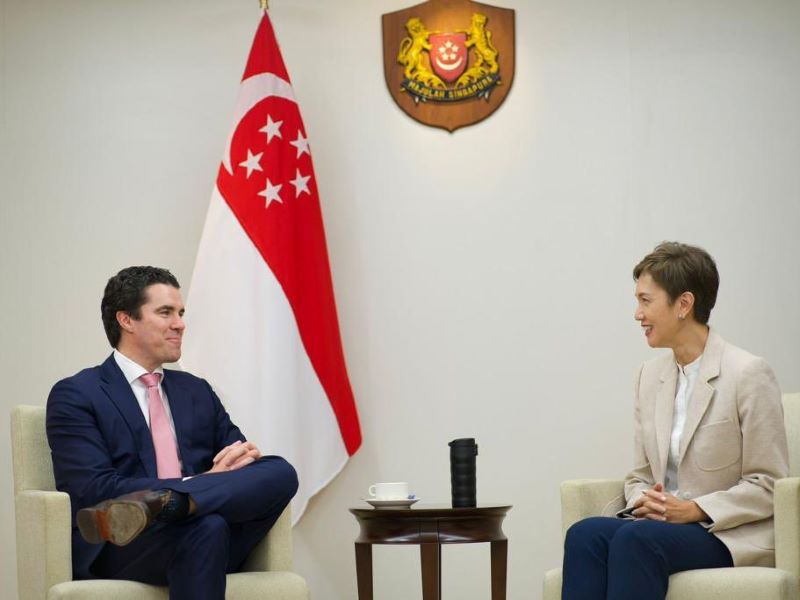Australian officials turned up their cyber-diplomacy in Singapore this week, promising to help Pacific nations combat risks like ransomware accompanying their increased digitalisation, and to use Australia’s sanction regime to punish cyber criminals.
On Tuesday, Assistant Minister for Foreign Affairs Tim Watts addressed the Singapore Government’s main cyber conference, warning of “ubiquitous” ransomware attacks across the developed world and the “more pernicious” threat ransomware poses to developing nations digitising their economies.

He said high income countries like Australia have an interest in combatting ransomware in developing nations.
“It’s in all of our interests that cyber threats like ransomware do not threaten the stability of the governments, economies and societies of nations in our region,” Mr Watts said.
“And where developing countries lack the resources, expertise and scale to respond to this threat, developed countries need to be ready to assist.
“As high income countries increasingly mobilise against the threat of ransomware to their own national interests, we need to ensure that the developing world is not left behind.”
Mr Watts was Labor’s cybersecurity spokesperson in Opposition but in government moved to Foreign Affairs where the department is implementing an International Cyber and Critical Technology Engagement Strategy.
The strategy, which was launched last year after a delay, is accompanied by a package of measures to support regional neighbours to build and maintain their own cyber resilience.
Mr Watts criticised the strategy in opposition at the time for lacking action on ransomware in particular.
At Singapore International Cyber Week, Mr Watts said Australia would do more for Pacific neighbours under the new government by building on existing “baseline cyber resilience” work with Indonesia, Solomon Islands, Vanuatu, Fiji, Tonga, Papua New Guinea and Samoa.
“The new Australian government has committed to listening to Pacific Islands voices and restoring Australia’s place as the first partner of choice for our Pacific family,” he said.
“We want to make a uniquely Australian contribution as partner of choice for the countries of the Pacific – reliable, turning up, showing respect, listening, and being transparent and open.”
Australia is also seeking to deter ransomware through its own autonomous sanction program, which includes a “significant cyber incidents” regime established late last year.
Mr Watts said the cyber incident sanctions will impose costs on individuals and organisations – “including the organs of any state” – determined to be engaging in malicious cyber activity.
Under the regime, the Foreign Affairs minister may designate a person or entity for targeted financial sanctions and declare a person for a travel ban if the person or entity caused or attempted to cause a significant cyber incident, or assisted with or was otherwise complicit in causing it.
Mr Watts said it allows the government to target cyber criminals and is “a useful part of the cyber-diplomacy toolkit”.
“It’s not easy. Sanctions are not a trivial exercise from a technical perspective and require careful analysis. But conceptually sanctions regimes are a useful tool for responding to and deterring malicious cyberactivity,” he said.
“We recognise that deploying sanctions of this kind would not be without international precedent.”
Australia’s cyber sanction regime can be coordinated with like-minded nations and provides a useful tool for combating ransomware, Mr Watts said.
“We look forward to continuing to work with like-minded countries to consider how we can impose sanctions on ransomware gangs and their enablers.”
Do you know more? Contact James Riley via Email.

